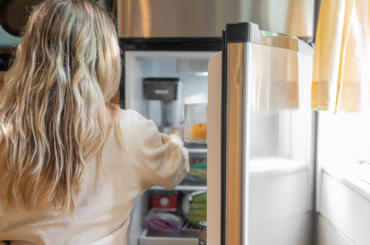With kids stuck at home for months on end, a lack of work-family balance, and nowhere to go to blow off steam, some households are experiencing “family burnout” as a result of the Covid-19 crisis.
Most parents are facing unprecedented challenges during this pandemic, but how do you know when your mental and emotional state is something to worry about? Lisa Coyne, Ph.D., a professor and clinical consultant in psychology at Harvard Medical School and McLean Hospital in Massachusetts, breaks down the risks and signs of family burnout, and how to prevent it.
Who’s at risk
According to Dr. Coyne, some parents are more at risk for family burnout than others. Major risk factors for parents include those who have perfectionist outlooks on parenting, those who are quick to get angry or frustrated, those who lack an emotional support system, those who are under extra pressure as essential workers, or those whose children have physical, emotional, or developmental challenges.
Family burnout may rear its head as a deep exhaustion that makes it difficult to perform basic tasks, or an emotional numbness that prevents you from connecting with family members. Other general signs could include depressed mood, addictive behaviors, difficulty sleeping, or increased conflict with family members. But the signs can be even more serious in some cases.
“If you feel like ‘opting out’ of your parental responsibilities, or even neglecting or abandoning your children, it may be a sign of burnout,” warns Dr. Coyne. “Serious warning signs can include thoughts of suicide and violent acts toward family members.”
Wherever you are on this spectrum, all parents can benefit from these strategies for preventing family burnout:
Self-awareness—for parents and kids
Take the time to reflect on your own emotional and physical health, and be aware of what you need. Don’t be too hard on yourself, as it’s difficult for everyone to maintain a healthy family dynamic during these times.
Accept your own feelings instead of pushing them away. Name your emotions out loud, whether they are negative or positive feelings—this also helps model healthy management of emotions for your kids. You can help your kids name their own emotions too. Naming your emotions can help bring what you’re really feeling into focus, which can make it easier to accept and manage.
Tap into healthy ways for you and your children to deal with stress and anger, like meditation, deep breathing, exercise, creative projects, or even mindless-but-satisfying chores. Find ways to get slivers of alone time. Try setting a timer for 15 minutes and asking your child to play, read, or watch something independently until the timer goes off.
Take care of yourself
Self-care might be the last thing on your list while dealing with the stress of parenting in a pandemic, but an important step toward finding emotional balance is to take good care of your body. Make it part of your routine to eat nutritious foods, avoid addictive substances such as alcohol and nicotine, and get regular exercise.
Another key to emotional wellbeing is having other adults to talk to. Whether it’s a weekly social-distance walk with a parent friend or a monthly Zoom meeting with a mental health support group, try to schedule some regular check-ins so that you don’t feel alone in all of this.
All of these strategies will help give you the mental and emotional bandwidth you need to be mindful about your own behaviors. So when a conflict is brewing either internally or with your partner or children, you can slow down and think about how you would want your children to remember your words and actions when they look back on this moment.







